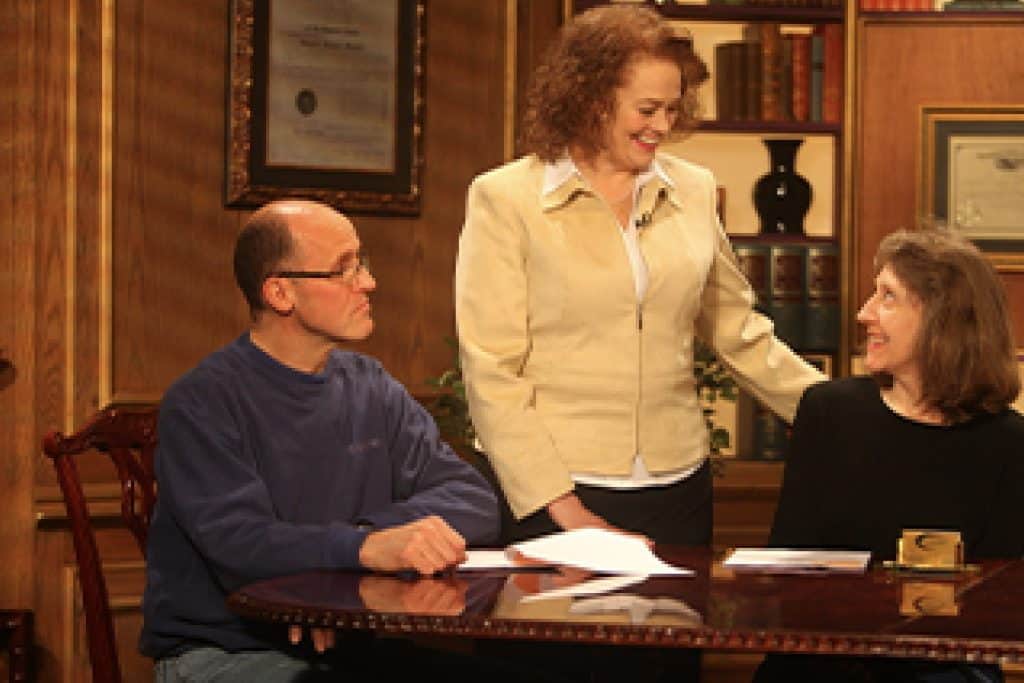Bowling Green
CAR ACCIDENT ATTORNEYS


Steps We Take To Get You A Top Settlement
“We Have Recovered Millions of Dollars for Our Clients”
Call Us 7 Days A Week, Even On Weekends At (888) 782-9090

We make sure our clients get the medical treatment and the settlement they deserve.

We travel to our injured clients when they cannot travel to us to provide personal representation.

Our team of investigators will be on the scene for our clients injured in semi-truck accidents.


“I could call and talk to Flora… her staff was great. I never had to worry. They would always ease my tension”.


 The Flora Templeton Stuart Team fought to obtain a fair settlement for Melanie, an 18 year who suffered severe brain injuries after she was struck by a drunk driver.
The Flora Templeton Stuart Team fought to obtain a fair settlement for Melanie, an 18 year who suffered severe brain injuries after she was struck by a drunk driver.
The drunk driver had been overserved by two different bars before getting into his car and colliding with our client going west on Campbell Lane. Melanie was severely injured and was taken to the Emergency Department of the Medical Center before eventually being heliflighted to Vanderbilt, where she underwent extensive operations. The accident left her with permanent damage and disabilities, but our team obtained a $1.2 million settlement after intense litigation in court on her behalf. The settlement cannot cure her injuries, but we hope it makes life going forward a bit easier for her.
*name changed to protect privacy
Common Causes of Car Accidents
As our personal accident lawyers in Bowling Green investigate your case, we’ll review evidence to establish fault. Driver error is a common cause of car accidents. Examples include:- Driving distracted
- Texting and driving
- Running a red light or stop sign
- Failing to yield the right of way to pedestrians
- Making an improper turn
- Speeding
- Tailgating
- Driving drunk
- Driving recklessly or aggressively
Most Dangerous Intersections in Bowling Green
According to the Bowling Green Police Department, intersections in the city with the most traffic collisions include:- Scottsville Road at Pascoe Boulevard
- Bryant Way at Scottsville Road
- Scottsville Road at Three Springs Road/Ken Bale
- US 31W Bypass at Fairview Avenue
- Scottsville Road in front of Greenwood Mall
Why You Need Our Personal Injury Lawyers
Personal injury law is complex and trying to handle an insurance claim or lawsuit on your own can be extremely difficult. An experienced attorney will be familiar with the legal process, including the deadlines (e.g. for filing documents, providing notices, etc.), and the most effective strategies for maximizing the value of your claim. Insurance adjusters may not be on your side and often look for ways to devalue or discredit your claim. One of the biggest mistakes that can be made is saying or doing the wrong thing, such as an accidental admission of fault. A lawyer will advise you on what to do or say and will protect you from insurer’s tactics. Only when you have highly reputable representation, will an insurance company take you seriously and consider offering fair compensation in order to avoid trial. Although, a skilled personal injury lawyer will still prepare your case for trial, in case a settlement agreement cannot be reached. Building a strong case on your behalf will require access to both financial and professional resources. Our law firm will hire investigators and expert witnesses to look into your accident, determine liable parties, and gather the evidence that is imperative to proving your claim. Constructing a case can be costly. Fortunately, our personal injury lawyers work on a contingency fee basis, which means you owe us nothing unless we are successful in your case. You only pay when we recover for you.Get Legal Help From a Personal Injury Attorney in Bowling Green
A serious accident or injury caused by another party’s negligence can turn your life upside down. We know how difficult an injury can be, and we’ll fight to protect your legal rights. With offices in Bowling Green and around Kentucky, injured parties have turned to us when they need compassionate and talented lawyers to represent them for more than 47 years. It’s our goal to make sure that clients get the compensation they deserve for their injuries with the hard work and resources it requires. We’ve handled all types of personal injury cases and we develop a legal strategy while we manage all the details of your claim so you can focus on healing. We have won millions for our injured clients like you, and we will treat you like family. You can count on us to provide personal legal representation, even if that means traveling to you at the hospital or your home on weekends.Damages to Collect in Car and Personal injury Accidents
Injured clients often ask, “What is my personal injury case worth?” Following a serious accident, you are likely to have medical bills, lost income, emotional distress, pain and suffering, and damage to your vehicle. Our job is to maximize your recovery and make sure you get excellent medical treatment along with establishing the liability of the defendant driver in a personal injury or wrongful death case. In Kentucky, if you are in a car accident, our firm sets up PIP Benefits for immediate payment of your medical expenses, lost wages, and replacement services. We will uncover all insurance, which could include uninsured and underinsured motorist coverage for maximum recovery. You may even be entitled to punitive damages if the Defendant is grossly negligent, causing the accident. You could recover additional damages such as:- Pain and suffering, for the physical pain your accident caused
- Emotional distress, such as accident-related anxiety and depression
- Loss of enjoyment of life if you are no longer able to participate in the activities you once enjoyed
- Reduced earning capacity if your injuries prevent you from earning the amount of money you once could
- Property damage costs, such as damage or destruction to your car, cell phone, or other personal property
- Ongoing medical care bills, if your injuries will require you to continue getting medical treatments
You Must File Your Bowling Green Personal Injury Lawsuit on Time
In Kentucky, you only have one year to file suit or be forever barred if you are injured due to the fault of another person. Vehicle collisions are the exception. Personal injury cases that are non-vehicle accidents include victims who have been bitten by a dog, slip and fall, medical malpractice, product liability cases, nursing home abuse, wrongful death, birth injuries, dangerous drugs, pharmacy mistakes, daycare injuries, hospital negligence, fire damage, medication error, and any injuries sustained due to the negligence of another person or corporation. The only exception to the one-year statute of limitations is when an injured person is under the age of eighteen. In those cases, the statute of limitations begins to run on the injured person’s eighteenth birthday. Individuals declared incompetent would not have the statute of limitations run until they are declared competent.
Our team has a five-step process for collecting vehicle accident compensation for victims of car collisions. We’ll investigate your case, open claims with your health insurance provider, collect your medical records and refer you to great doctors, set up annuities and college funds for injured children, and negotiate for the settlement you deserve.
- Medical expenses, past and future
- Disfigurement, loss of limb, permanent scarring
- Lost wages
- Lose love, companionship, and guidance
- Disability costs or live-in care
- Physical pain and emotional suffering
- Lost capacity to earn
At Flora Templeton Stuart Accident Injury Lawyers, we care about the outcome of your case. With five decades of experience, we are confident in our ability to competently guide you through the claims process. We specialize in Car Accident, Semi-Truck Accident, Wrongful Death, Slip & Fall Accident, Work-related Injuries, and many more areas of the law.
Contact us online or by calling (888) 782-9090 and we will meet you where it is convenient, whether at home, in the hospital, or at another location. Receive answers to all of your legal questions and have your case evaluated for free. We can be reached day or night, seven days a week.
If a negligent act has caused injury to you or a loved one, contact Flora Templeton Stuart Accident Injury Lawyers for a free case evaluation.
Several types of insurance coverage that will pay if you’re injured in an automobile collision:
Personal Injury Protection: The vehicle you are in is the primary coverage for payment of Personal Injury Protection (PIP) in Kentucky. PIP has minimal limits of $10,000 and pays medical expenses, lost income, home care, and even a portion of funeral expenses. Kentucky automobile accident lawyers reserve these benefits so medical bills and lost wages will get paid. PIP is repaid by the party at fault.
Liability: The at-fault driver pays for injuries caused to another through their liability policy, which in Kentucky has a minimum policy of $25,000 per person / $50,000 per accident and a maximum can be in the millions with a commercial insurance policy.
Uninsured Motorist: If the driver at fault did not have insurance you can collect on your uninsured motorist’s coverage on your own insurance policy.
Underinsured Motorist: If the at-fault driver of the vehicle had insurance but not enough or your injuries are greater than that amount you can collect on underinsured motorists. Flora Templeton Stuart will make sure all underinsured policies are uncovered for maximum recovery.
Under the “no-fault” car insurance system in Kentucky, drivers are required to carry a minimum of $10,000 in Personal Injury Protection (PIP) insurance. Regardless of who causes the accident, PIP covers medical expenses and lost wages. However, if you’re in an accident, you can opt out of the no-fault system to pursue auto injury claims against the at-fault driver and possibly receive more vehicle accident compensation.
Statute of Limitations in Kentucky and Tennessee
Placeholder Heading: Statistics
Placeholder Description: This section highlights key figures and insights. Placeholder text is used here to represent where real data and statistics will be displayed. This section highlights key figures and insights. Placeholder text is used here to represent where real data and statistics will be displayed.
Kentucky And Tennessee Personal Injury FAQs
Accidents and injuries can occur for many different reasons. However, if an individual, employer, or business is responsible for the incident, a personal injury lawyer near you can advise you of your legal options and the next best steps.
Flora Templeton Stuart Accident Injury Lawyers cares about you. We can determine whether you have a case and assist you with recovering damages such as medical bills, income loss, pain and suffering, and many more.
Why Hire Flora Templeton Stuart Accident Injury Lawyers?
With fifty years of representing clients in Kentucky & Tennessee, our personal injury lawyers are dedicated to obtaining justice for our injured clients. With local attorneys, right here in your community, we provide personal representation with our top attorneys. We meet with our clients to explain the entire process, leave no stone unturned with an extensive investigation to include our experts, and will refer our clients to excellent physicians. We take on the insurance company to obtain a maximum settlement. We can come to you and with offices close by we can travel to our injured clients when they cannot come to us. We treat our clients like family.






